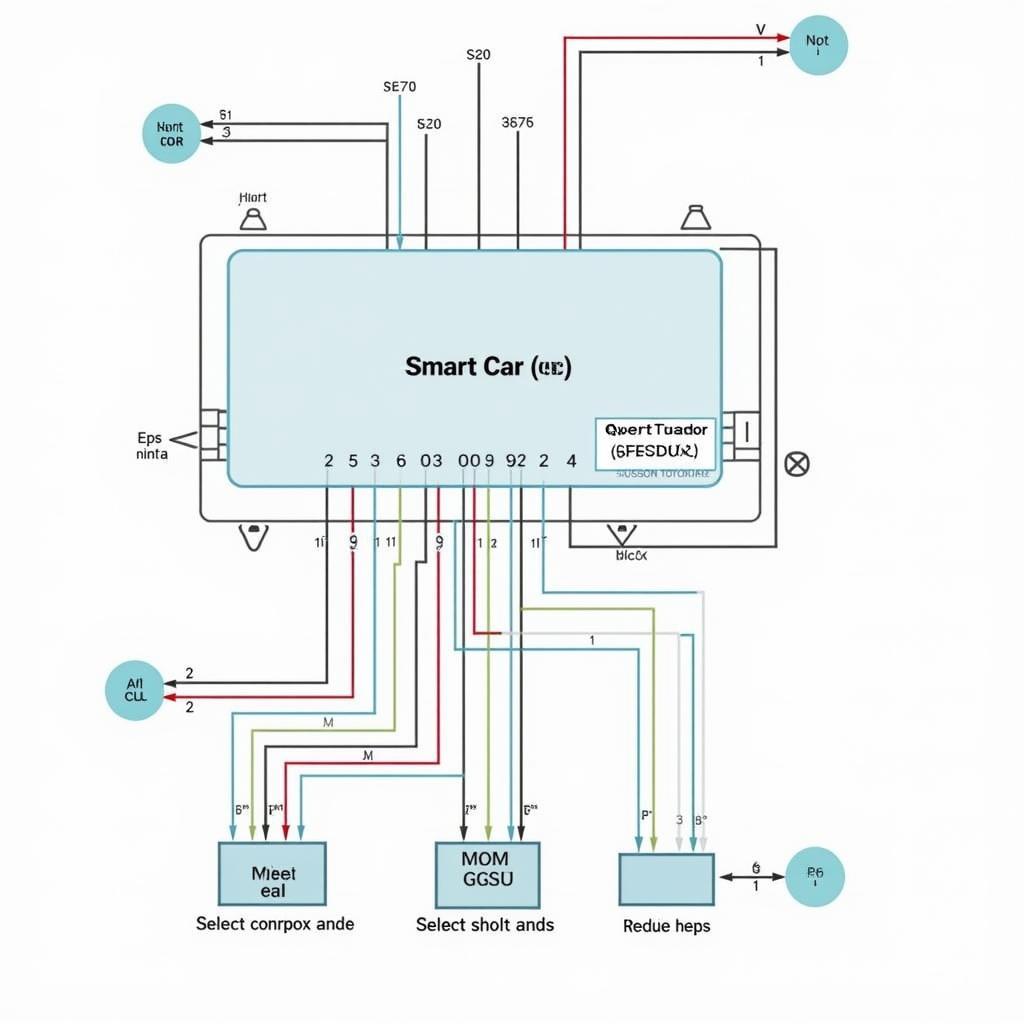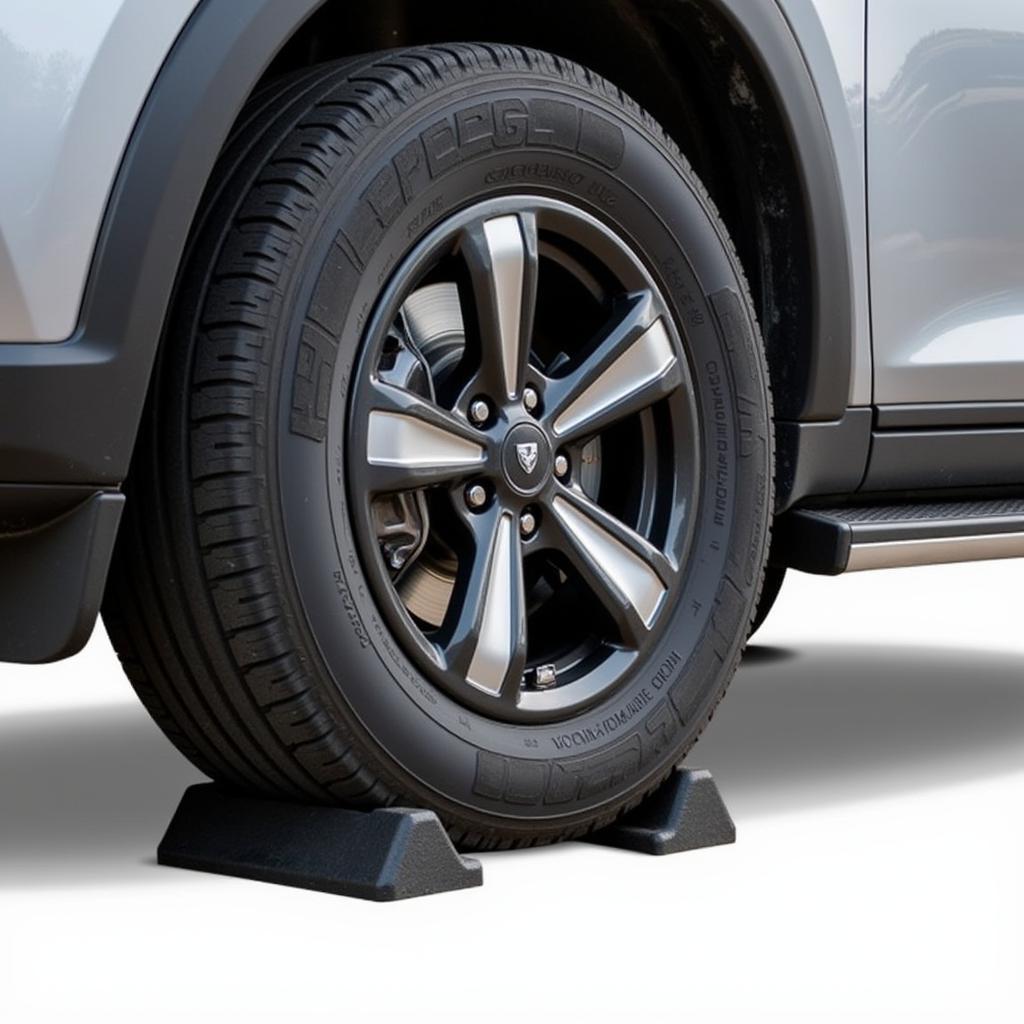The Smart Fortwo, known for its compact size and fuel efficiency, is a popular choice for city dwellers. However, like any car, it can experience its share of problems. One common issue that Smart car owners may encounter is problems with the ECU, or Engine Control Unit. This article will delve into common Smart Car Ecu Problems, their causes, symptoms, and solutions.
What is a Smart Car ECU and What Does it Do?
The ECU is essentially the brain of your Smart car’s engine. It’s a sophisticated computer that manages a plethora of engine functions to ensure optimal performance and efficiency. This includes managing fuel injection, ignition timing, air intake, and emissions control. The ECU relies on sensors located throughout the engine to gather data, which it then uses to make adjustments in real-time.
Common Smart Car ECU Problems
While ECUs are generally reliable, they can malfunction. Here are some common smart car ECU problems:
- Faulty sensors: The ECU relies heavily on accurate data from various sensors. If a sensor malfunctions and sends incorrect information to the ECU, it can lead to misfires, poor fuel economy, and even engine damage.
- Wiring issues: The ECU communicates with other components through a network of wires. Damaged, corroded, or loose wiring can disrupt these communication channels, leading to a range of issues, from intermittent problems to complete ECU failure.
- Water damage: The ECU is typically located in a relatively protected area, but water damage is still a possibility, particularly in older vehicles. Exposure to moisture can cause short circuits, corrode connections, and damage the ECU beyond repair.
- Software problems: Like any computer, the ECU relies on software to function correctly. Software glitches or corruption can lead to a variety of problems, from erratic engine behavior to complete system failure.
 Smart Car ECU Wiring Diagram
Smart Car ECU Wiring Diagram
Symptoms of Smart Car ECU Problems
Recognizing the symptoms of potential ECU problems can help you address the issue before it escalates. Here are some common signs:
- Check Engine Light: This is one of the most obvious signs of an ECU problem. If the ECU detects an issue, it will trigger the check engine light to alert you.
- Poor Performance: You might experience a noticeable decrease in your Smart car’s performance. This could manifest as sluggish acceleration, rough idling, or difficulty starting.
- Reduced Fuel Economy: A malfunctioning ECU can disrupt the fuel-air mixture, leading to decreased fuel efficiency.
- Erratic Transmission Behavior: Some Smart car models have electronically controlled transmissions, and a faulty ECU can disrupt its operation, causing rough shifting or unexpected gear changes.
Diagnosing Smart Car ECU Problems
Diagnosing ECU problems typically requires specialized equipment and knowledge. If you suspect an ECU issue, it’s best to take your Smart car to a qualified mechanic or a dealership specializing in Smart car repairs. They can use a diagnostic scanner to read fault codes stored in the ECU’s memory, providing valuable insights into the underlying problem.
15 amp fuse problems in cars can also sometimes be mistaken for ECU problems, as they can cause similar symptoms.
Solutions for Smart Car ECU Problems
The solution for a smart car ECU problem depends on the specific issue. Here are a few possible solutions:
- Sensor replacement: If a faulty sensor is detected, replacing it is usually a straightforward fix.
- Wiring repair: Damaged or corroded wiring needs to be repaired or replaced to restore proper communication between the ECU and other components.
- ECU replacement or repair: In some cases, the ECU itself may need to be repaired or replaced. Repairing an ECU can be complex and is often not cost-effective. Replacement ECUs may need to be programmed to match your specific car model.
- Software update: If the problem is software-related, updating the ECU’s software might resolve the issue.
Preventing Smart Car ECU Problems
While not all ECU problems are preventable, there are steps you can take to minimize the risk:
- Regular Maintenance: Adhering to your Smart car’s recommended maintenance schedule can help prevent many issues, including those related to the ECU.
- Quality Parts: When replacing sensors or other components that interact with the ECU, ensure you use high-quality parts from reputable manufacturers.
- Professional Repairs: For any electrical work on your Smart car, it’s best to rely on qualified professionals with experience working on Smart cars.
smart car subwoofer problems can sometimes occur due to electrical issues stemming from a faulty ECU, highlighting the importance of a properly functioning ECU for your car’s overall electrical system.
Conclusion
Your Smart car’s ECU plays a vital role in ensuring optimal engine performance and a smooth driving experience. Understanding potential smart car ECU problems, their symptoms, and solutions can help you address issues proactively and keep your Smart car running smoothly. If you suspect any ECU problems, it’s crucial to seek professional diagnosis and repair to prevent further damage and costly repairs down the line. For expert advice and assistance with your Smart car’s ECU or any other automotive concerns, feel free to reach out to the professionals at AutoTipPro. You can contact us at +1 (641) 206-8880 or visit our office at 500 N St Mary’s St, San Antonio, TX 78205, United States.







Leave a Reply